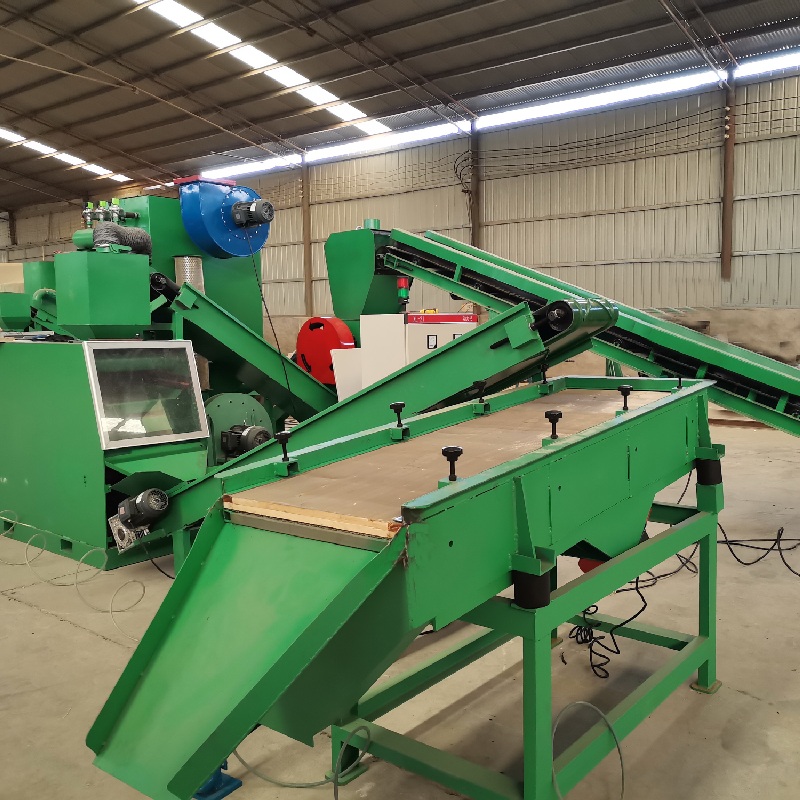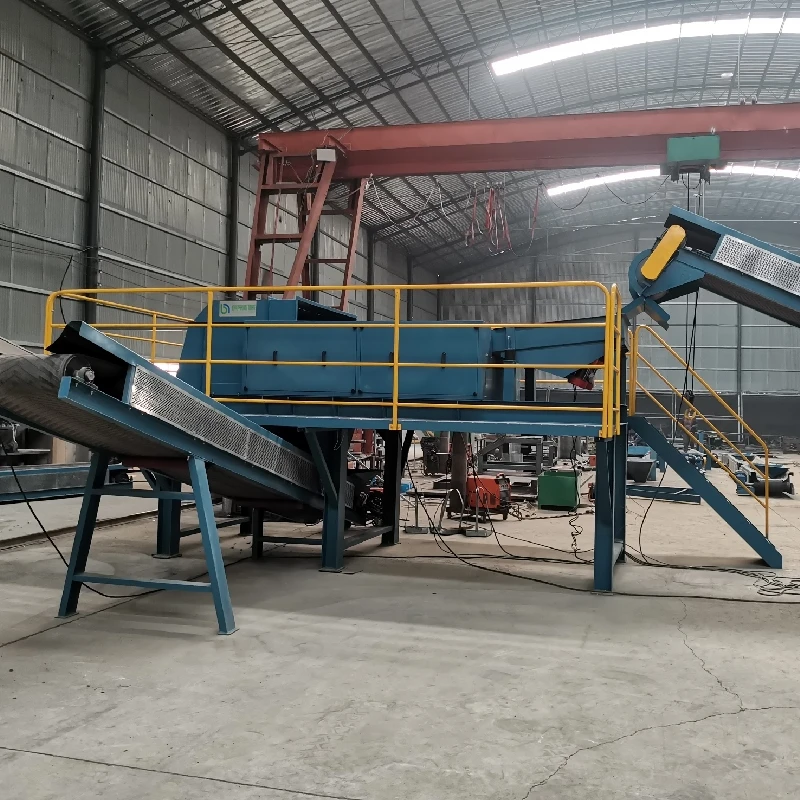Recycling plants have become a cornerstone in the quest for sustainable living, playing a pivotal role in managing waste effectively. Metals, constituting a significant part of this waste, require meticulous sorting to ensure successful recycling. The process of sorting metals in recycling plants combines advanced technology with expertise, embodying the principles of Experience, Expertise, Authoritativeness, and Trustworthiness in waste management.

Initially, metals in recycling plants are sorted using a process that blends manual labor and sophisticated machinery. The first stage generally involves conveyor belts, where workers remove non-metallic materials. Although manual, this process demands considerable expertise; workers must identify and separate materials quickly to ensure efficiency and accuracy. Human experience in recognizing and sorting different metal types is invaluable at this stage.
After manual sorting, technology takes center stage. Magnets are employed to separate ferrous metals, such as iron and steel, due to their magnetic properties. This method is swift and effective, reclaiming a large volume of metals within minutes. The magnetism principle showcases how recycling plants leverage authoritative scientific knowledge to streamline operations.

Non-ferrous metals, like aluminum and copper, present a more significant challenge due to their non-magnetic nature. One cutting-edge technology employed here is the eddy current separator. This device creates a powerful, fluctuating magnetic field, inducing an electric current in the non-ferrous metals, which then repels them from other waste. Eddy current separators exemplify trust in innovative science to meet recycling goals, highlighting the plant’s commitment to environmental responsibility.
Further refining comes with the use of advanced sensor-based technology. X-ray fluorescence (XRF) and laser-induced breakdown spectroscopy (LIBS) are utilized to identify specific metal compositions. These technologies offer non-destructive analysis, providing precise sorting solutions based on the unique signatures of metal alloys. Expertise in these technologies allows plants to handle complex metal sorting with reliability and precision, building trust through consistent quality.
how metals are sorted in recycling plants
Innovation doesn’t end with existing technologies. Continuous research and development are critical in recycling, driven by the experience of industry experts seeking to enhance efficiency. Recycling plants often collaborate with technology companies to develop bespoke solutions tailored to their specific needs, boosting productivity and sustainability. This collaboration underscores the importance of authoritative expertise in creating state-of-the-art recycling systems.
Additionally, recycling plants follow stringent environmental regulations and standards that reinforce their authority and trustworthiness. Compliance with global recycling standards ensures that facilities minimize environmental impact while maximizing metal recovery. Transparent reporting and independent audits further enhance the credibility of these processes, appealing not only to regulatory bodies but also to environmentally-conscious clients and partners.
Incorporating robust training programs for staff is another facet of maintaining excellence in recycling plants. Ongoing education ensures that all employees, from manual sorters to machine operators, possess up-to-date knowledge and skills. Training is tailored to reinforce reliability and safety, crucial components of trust for both workers and the community.
Recycling plant operations also encompass a crucial feedback loop that leverages experience for continuous improvement. Regular assessments and updates based on performance data help facilities optimize processes, reduce costs, and increase metal recovery rates. By honoring the feedback and experiences from various stakeholders, plants empower themselves to innovate responsibly and authoritatively.
In conclusion, the sorting of metals in recycling plants illustrates a perfect amalgamation of human expertise and technological advancement. By emphasizing Experience, Expertise, Authoritativeness, and Trustworthiness, recycling plants not only achieve operational success but also contribute significantly to global sustainability efforts. Continued investment in technology, education, and collaboration propels these facilities towards an environmentally-friendly future, establishing them as leaders in the vital mission to recycle and reuse valuable resources.



